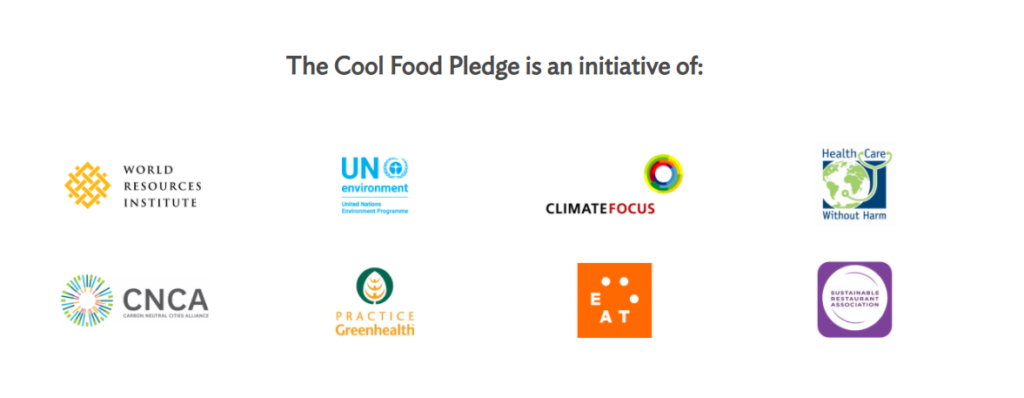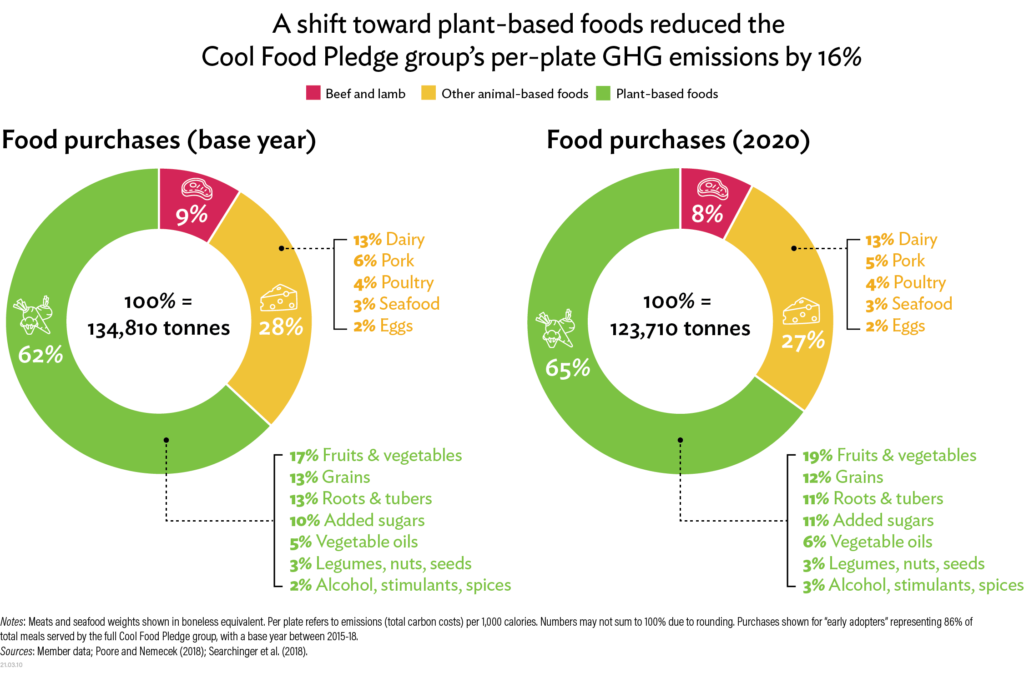Cool Food Pledge — a rising movement of companies, hotels, colleges, hospitals, and restaurants seeking to reduce food-related greenhouse gas emissions by 25% by 2030 relative to a 2015 baseline – a level of ambition consistent with meeting the Paris Climate Agreement targets.

Organizations serving 1.2 billion meals a year have signed up. Members are guided through a three-step approach: Pledge, Plan, and Promote. This promise has recently been signed by PepsiCo, the University of Texas at Austin Housing and Dining, ISS World Services A/S, and healthcare organisations Providence and Mount Sinai Health System.
Every year, pledge members anonymously submit food purchase quantities by weight. The Cool Food team requests information on all animal-based meals as well as plant proteins, which account for 80-90 percent of an organization’s food-related GHG emissions.

Animal-based foods account for two-thirds of agricultural GHG emissions and more than three-quarters of agricultural land usage globally, but plant-based diets have fewer environmental implications.
Beef consumes 20 times more land and emits 20 times more greenhouse gases per gramme of protein than beans, for example. People do not need to become vegetarians in order to eat sustainably.

By consuming less animal-based foods and more vegetables, the average American could reduce their diet’s environmental impact by nearly half.
According to data, if existing Cool Food Pledge members achieve the 25% reduction objective by 2030, yearly food-related emissions will be reduced by 1,314,572 t CO2e – the equivalent of taking around 285,000 U.S. passenger vehicles off the road.
Reference- Cool Food Pledge website, WRI website, Business Wire, Forbes, Vox, BBC






